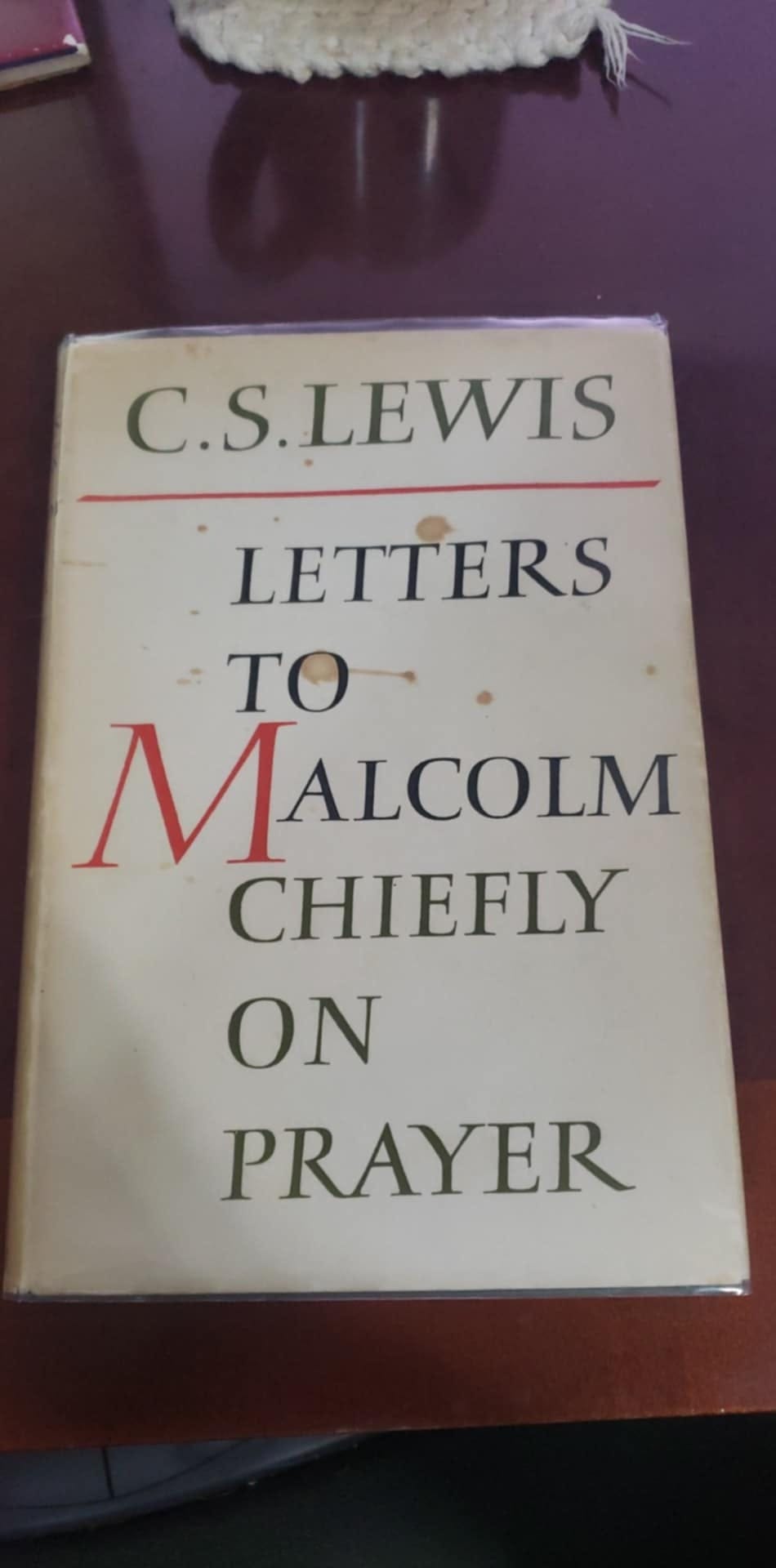Lewis opens with a reference to a forest area in western Gloucestershire, England, called the Forest of Dean. You can read about the forest HERE. I didn’t find much to engage me concerning Lewis being there or otherwise. The point of this opening is for Lewis to set the stage on the topic of this chapter, which is to bring us back to the idea that prayer is a form of “worship or adoration” (p.116).
While reading this, Lewis says, “On this subject, you yourself taught me nearly all I know. On a walk in the Forest of Dean. Can you have forgotten?” (p.116). That got me thinking. I’ve been considering Malcolm as just a fictitious foil off which Lewis can play his discourse. However, here, in this quote, I see the idea that maybe Malcolm is far more than a fictitious man with a make-believe wife, and a pretend son. What if Malcolm is actually God?
Consider everything we’ve read to this point in the book. Each chapter starts with Lewis responding to something Malcolm wrote to him in a letter. That’s the premise of the entire book is that we see Lewis’ side of the conversation, his letters to Malcolm. We never get to see Malcolm’s letters to Lewis. What if, as C.S. Lewis writes a chapter, the Holy Spirit responds to him in his mind as though He were arguing Malcolm’s position? This only matters if Lewis thought that. Otherwise, it is just Lewis having a mental exercise and debating himself as he responds with the counter arguments or positions either he has had in the past or has heard in the past from others.
My position is that Malcolm is in fact the Holy Spirit because the tenor of the book to this point has been Lewis explaining much of his philosophy on dealing with grief through prayer. It mostly centers on worship of God trusting Him to have a better understanding of why things happen than we do.
“You first taught me the great principle, ‘Begin where you are.’” (p.116). That is an excellent principle for any endeavor. We cannot do otherwise if we are to start at all. If we say, “I’m not prepared yet. I must get ready to start,” then whatever we do next is actually starting because we are getting those things done to “get ready” in order to start. If we then move into “starting” whatever it is we planned to do, by definition we began when we started to “get ready to start.”
He explains Malcolm refreshed himself with water from a local brook in the Forest of Dean, suggesting Lewis start there. This event happened, I believe. It isn’t a fictitious occurrence or something Lewis fabricated in his mind. I think this moment occurred as described, but for Lewis, it was a moment of clarity about the presence of God in the little things of the world. I take that position because Lewis explains, “They were not the hope of glory, they were an exposition of the glory itself.” (p.116). I am confident in this, and scripture backs me up.
7“But now ask the beasts, and let them teach you; And the birds of the heavens, and let them tell you.
8“Or speak to the earth, and let it teach you; And let the fish of the sea declare to you.
9“Who among all these does not know That the hand of the Lord has done this,
10In whose hand is the life of every living thing, And the breath of all mankind?
Job 12:7–10 (NASB95)
Lewis makes a different case, though. He states the feeling of pleasure is what he senses as the glory of God. I contend that the one leads to the other. In the described scene the input of our eyes as a delightful or wonderous scene is the physical perception of the glory of God in the world He created. We feel that perception as happiness or pleasure, but not all pleasures come from God as feelings without thought behind them can make us feel good, like an addict sticking the needle in his arm again or the alcoholic in the midst of a bender. The feeling is not the glory of God. The source of the feeling is the glory of God.
Keep reading with a 7-day free trial
Subscribe to Small Group Bible Study Material - The Cavalier's Pen to keep reading this post and get 7 days of free access to the full post archives.




